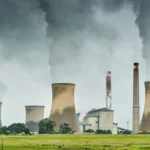Africa is no longer passive in global trade. Tariffs imposed by the United States under Donald Trump forced the continent to confront the risks of relying on a single market. Depending heavily on the US was never sustainable. When Washington raised tariffs and issued threats, Africa responded by seeking new partners. The impact was far less than expected. The continent is awake, open for business, and less tied to America’s grip on its economies.
As ties with Washington weaken, other powers are stepping forward. This week, Japan hosts the ninth Tokyo International Conference on African Development in Yokohama. Around 20 leaders are attending, including South Africa’s Cyril Ramaphosa and Angola’s João Lourenço. For Japan, which is trying to escape three decades of deflation, Africa offers fresh opportunities. With little Japanese investment on the continent so far, the potential for growth is significant.
India is also deepening ties. Later this month, New Delhi will host the India-Africa Business Conference. The event will focus on oil and gas, technology, and logistics. China and Russia have already held their own Africa summits. Turkey and the UAE have also stepped up efforts to grow their influence.
Trump’s tariff regime, which stripped away many African nations’ preferential access to US markets, is reshaping global trade. To adapt, African governments must break the cycle of exporting raw materials and relying on foreign aid. Instead, the focus should shift to building industries, creating value chains, and attracting sustainable investment.
Ironically, Trump’s trade war may give Africa its biggest opening yet. By pushing the continent to diversify its partnerships, Washington has created the space for Africa to forge stronger, more balanced and reliable relationships across the world.










